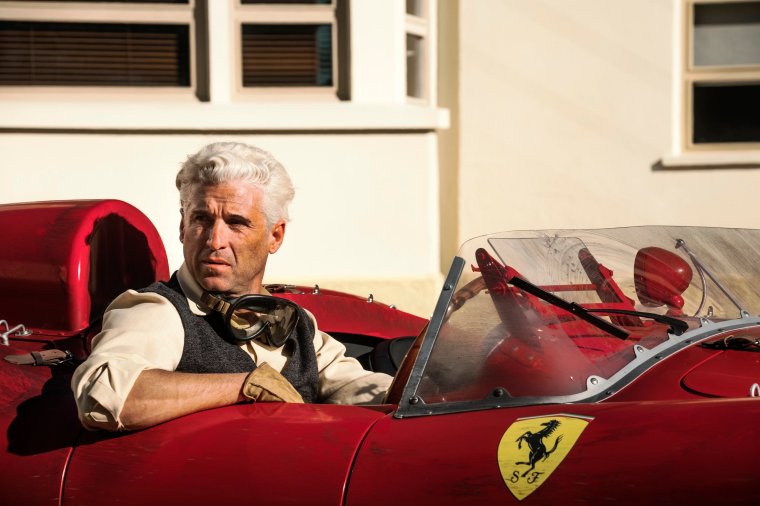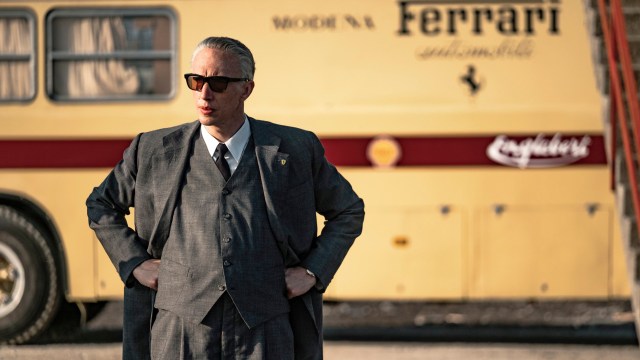From The Last of the Mohicans to Collateral, Michael Mann has always been fascinated by a certain kind of masculinity: men who are consummate professionals, with a clenched precision about their work (whether a cop or a safecracker), who are fundamentally alone. His biopic of former race car driver, automotive innovator, and notorious womaniser Enzo Ferrari fits that blueprint perfectly.
Adam Driver, lean and severe behind dark sunglasses, is the exacting, arrogant figure at the centre of the film, which takes place over the summer of 1957.
In the first 30 minutes, we are introduced to him at a point of financial and personal crisis. We see him curtly choose a new driver for his team in a matter of moments after watching another tumble like a rag doll from the wreckage of an accident; we see his face crumble at the grave of his son.

A year earlier, Enzo and his wife Laura (Penélope Cruz, ragged and fearsome) lost Dino in his mid-twenties to illness. Laura is now on the verge of discovering that her husband has a mistress (Shailene Woodley) and a young son. As Ferrari struggles to regain sales, he hopes to save his empire from bankruptcy with a flashy win at the classic 1000-mile road race Mille Miglia. But the fallout of his decisions threaten to overwhelm everything.
“If you get in my car, you get in to win,” Ferrari says pointedly to his dashing young drivers, Alfonso de Portago (Gabriel Leone) and Peter Collins (Jack O’Connell). And when tragedy strikes again – in a suspensefully mounted, razor-sharp, bone-thudding car crash – it’s heart-in-throat stuff.
It’s a fascinating approach to a life story: this is a film haunted by grief as much as it is garlanded by the glamour of Ferrari’s achievements. The movie stars and exotic locations are secondary to the business of building and racing perfect motor vehicles, all gleamingly beautiful models caressed by the camera. Indeed, Mann’s aesthetics are faultless, cutting elegantly from veering tire wheels to his neat paperwork.
Where the film falls falls down is in the writing of Ferrari’s personal life. It never shies away from the pain and cruelty he inflicts on his wife – as she discovers his second family, she grows unhinged, wielding a gun and getting involved in sneaky legal dealings. But her extreme reaction so upstages her husband’s macho calm that Mann risks making her look worse than Ferrari does.
Still, the image that emerges of him is certainly not positive: this is someone who has, by compartmentalising, inured himself to being surrounded by deaths of his drivers in races and test-runs, even when he is literally there to watch the smoking wreckage.
Ferrari takes a smart approach to the biopic, raising questions about masculine achievement and egotism in the face of so much loss. It manages to do so without ever dimming the sparkle and excitement of Enzo Ferrari’s beloved cars and the thrill of the race, allowing us a glimpse at the complex motor which kept this man running.

